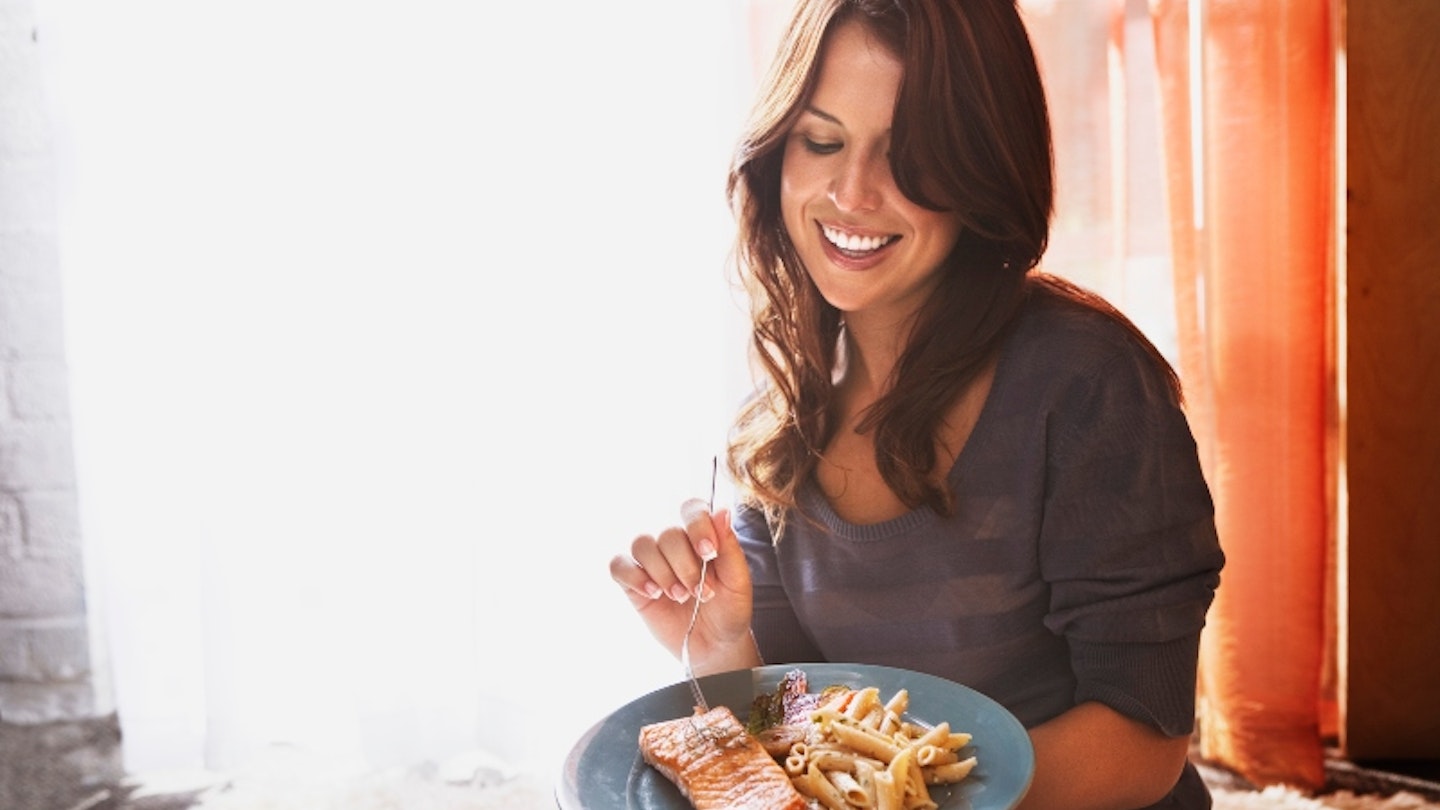Vitamin D is anessential vitamin to encourage the growth of strong bones in our bodies.
“It works alongside calcium and phosphate to help build strong bones, but also around your muscles and your teeth,” says Katie Angotti, a registered nutritionist who specialises in pregnancy and weaning.
“We get most of our vitamin D from exposure to sunlight, but during the winter months we don't get enough access to UVB light to be able to make it, so then we then look to get it from supplements. We’re even starting to find out that it has a role in potentially preventing health conditions like heart disease and infections.”
How much vitamin D should we be taking?
“The Department of Health recommends that all children aged six months to five years should take a daily supplement of vitamin D all year round to ensure they are meeting the recommended daily amount,” says child nutritionist Judy More. “While the adults, including women who are pregnant and breastfeeding, are recommended to take a daily supplement of 10 micrograms.”
For newborn babies, it depends whether they are breastfed or formula fed as to whether they’ll need a vitamin D supplement says Katie: “If your baby is exclusively breastfed then they need to have a vitamin D supplement, whereas formula fed babies don't, because it's already added into the formula milk. Babies under one who are having a supplement should have 8.5 micrograms as a minimum and you can get little drops that you either then drop into their mouth or onto your nipple, so when they're breastfeeding they can take the supplement.”
When it comes to getting vitamin D from our food, there aren’t many that provide us with this, as our primary source is the sun. However there are a few foods containing small amounts.
Read on to find out which foods contain small amounts of vitamin D to help you reach your daily dosage…
Oily fish
“It’s the main food that will give vitamin D,” says Katie. “It's a really good source of vitamin D in the sense that you don't have to eat huge quantities to get a large amount of it.”
Oily fish that include decent amounts of vitamin D include:
-
Sardines
-
Mackerel
-
Trout
-
Salmon
“Cod liver oil also contains vitamin D, although this is not appropriate when you’re pregnant because they contain high levels of vitamin A,” says Katie.
Eggs
Eggs contain small amounts of vitamin , specifically the yolk, says Katie, and can provide a little of the vitamin in the many dishes and foods they are also included in.
Meat
"Meats such as beef, pork, lamb, turkey and chicken contain very small amounts of vitamin D," says Judy. "If you eat meat it is a good idea to include them in you and your children’s diets four or five times a week."
Fortified foods
In the UK only a few foods are fortified with vitamin D. These include some breakfast cereals, yogurts (especially children’s brands, like Petit Filous), breads, margarines and some milks, so try to choose these fortified foods when you can.
“You can even get mushrooms that contain vitamin D, as those mushrooms would have been out in the sunlight and exposed to UVB, which increases the vitamin D content,” says Katie. Although it’s also worth noting that if cereals are labelled as ‘organic’ they often won't contain any fortified vitamin D,” say Katie.
Formula milks for babies and toddlers
"These milks are all fortified with small amounts of vitamin D but your little ones drinking these milks should still take the recommended vitamin D supplement," says Judy.
